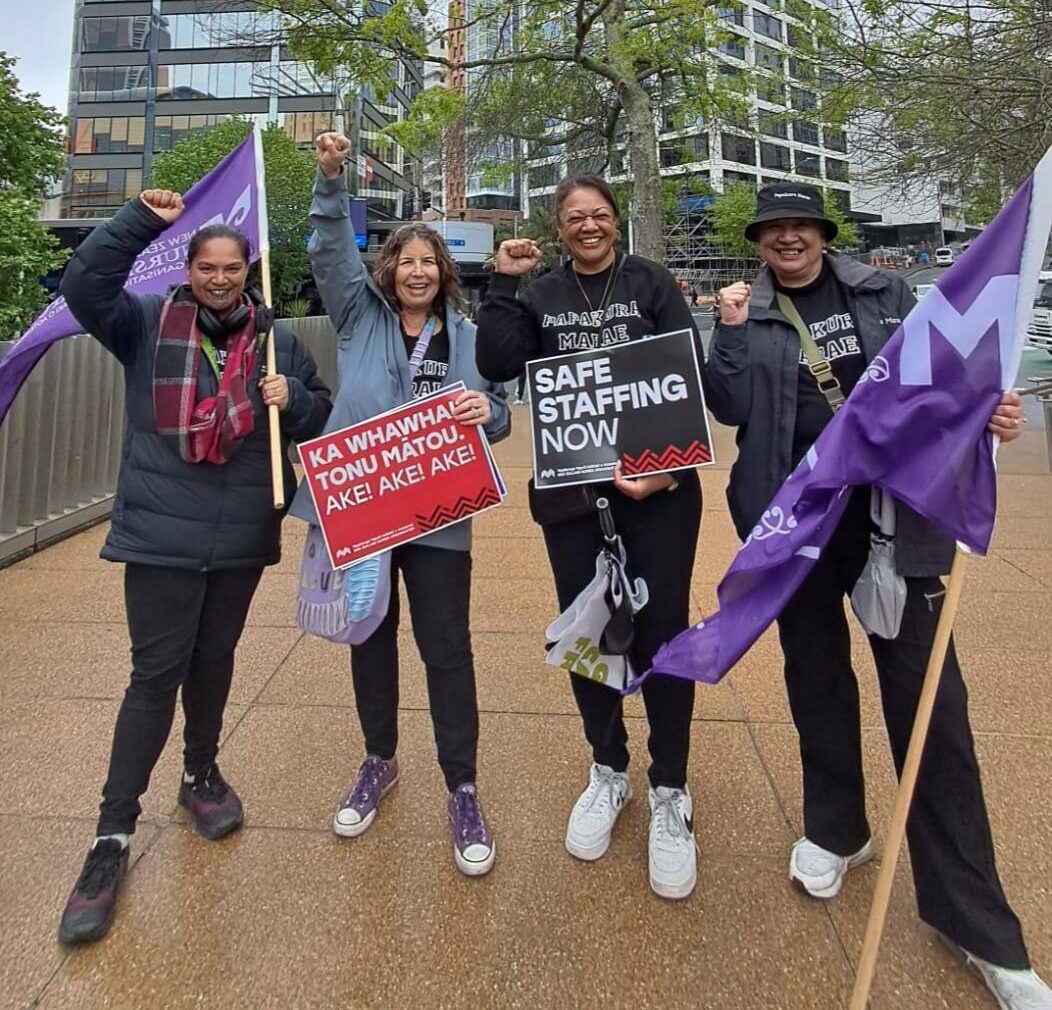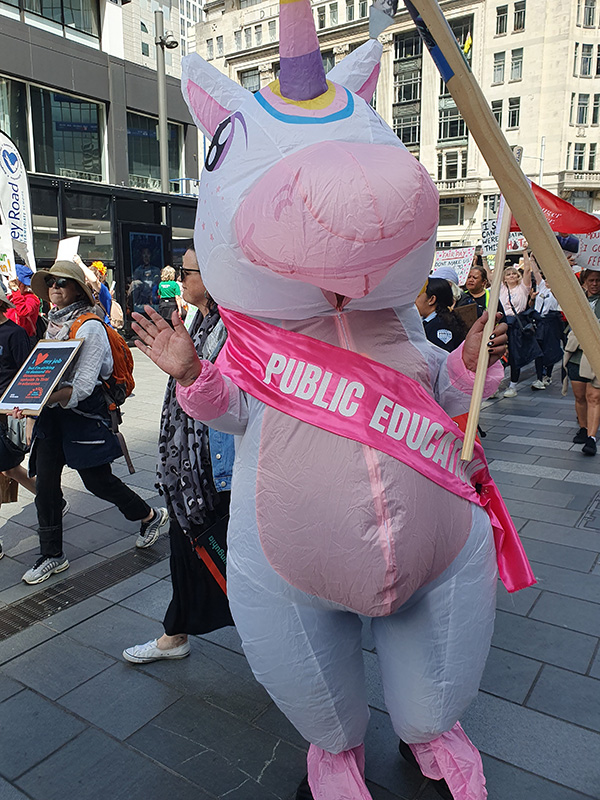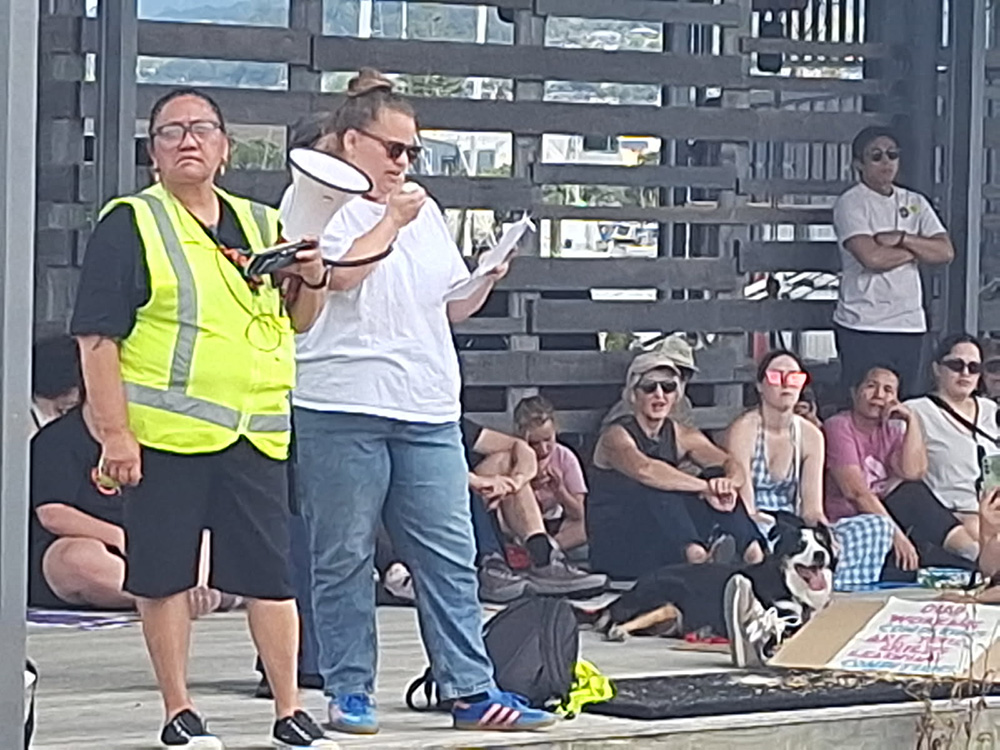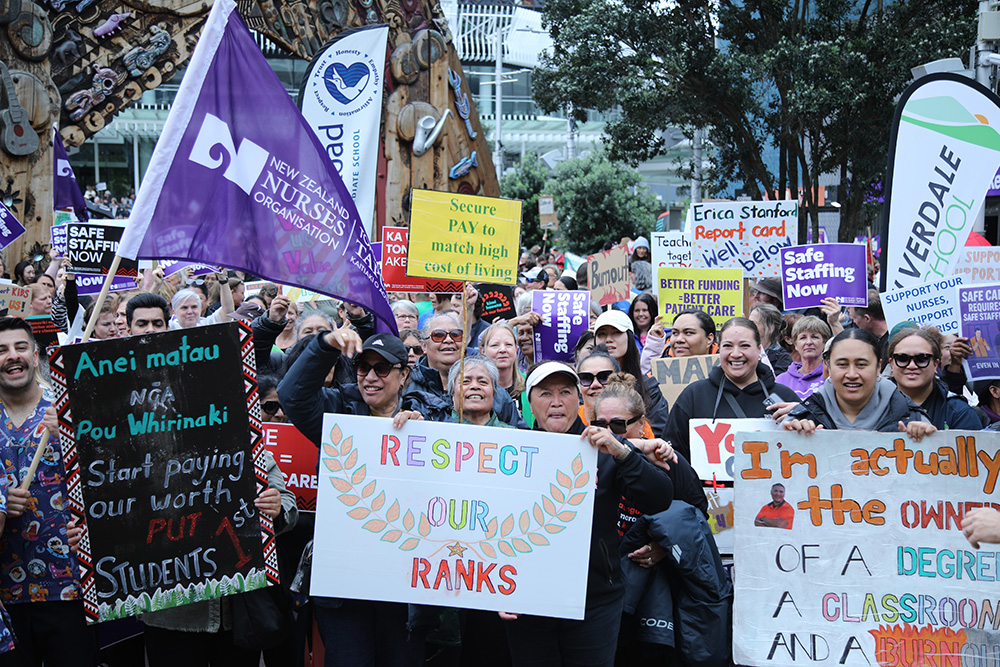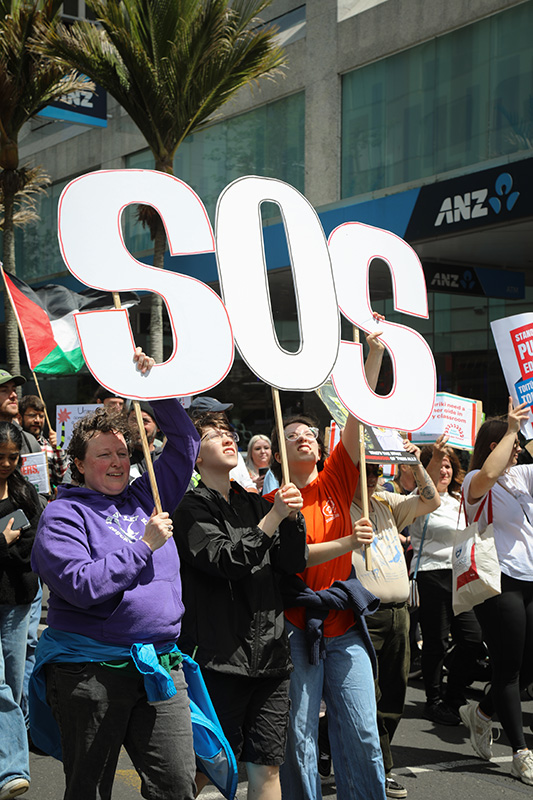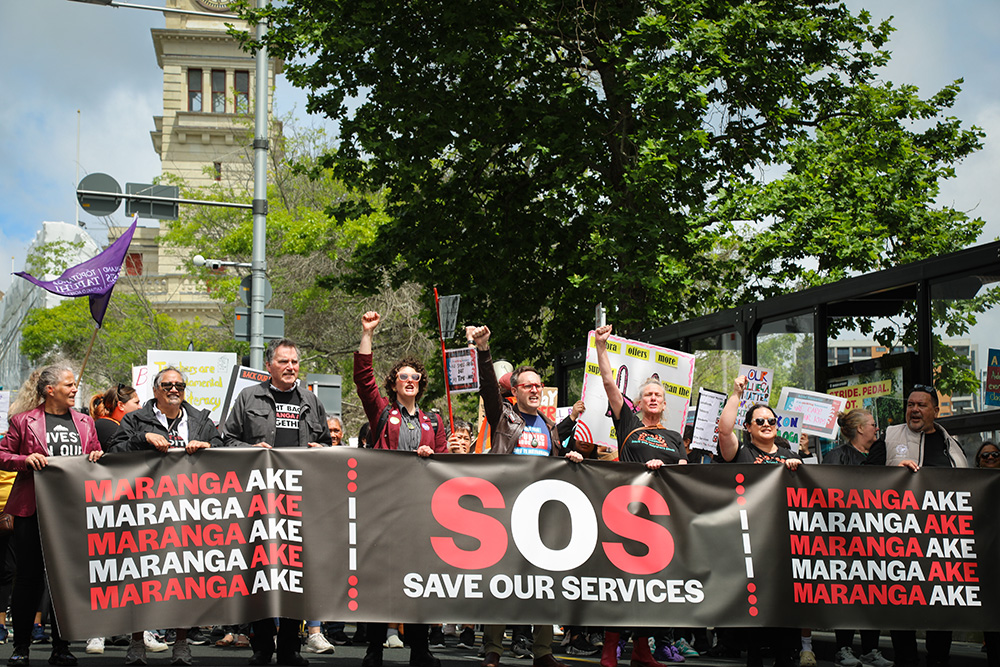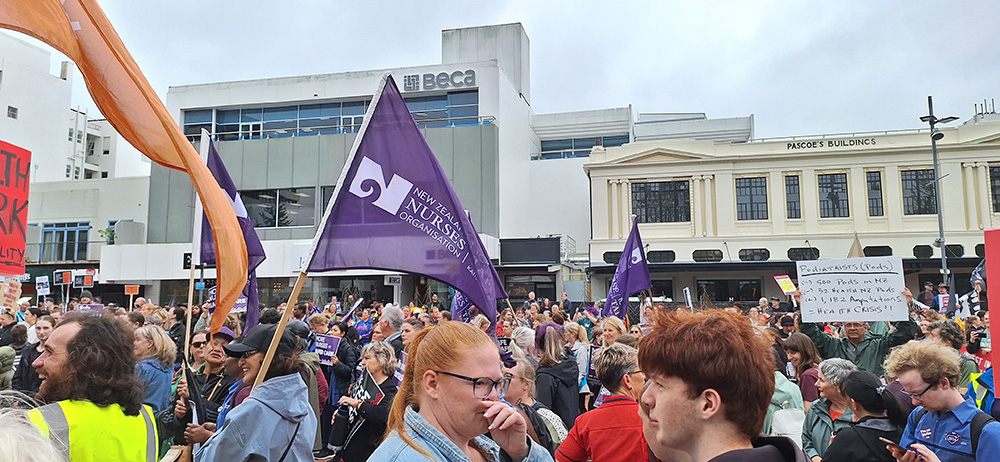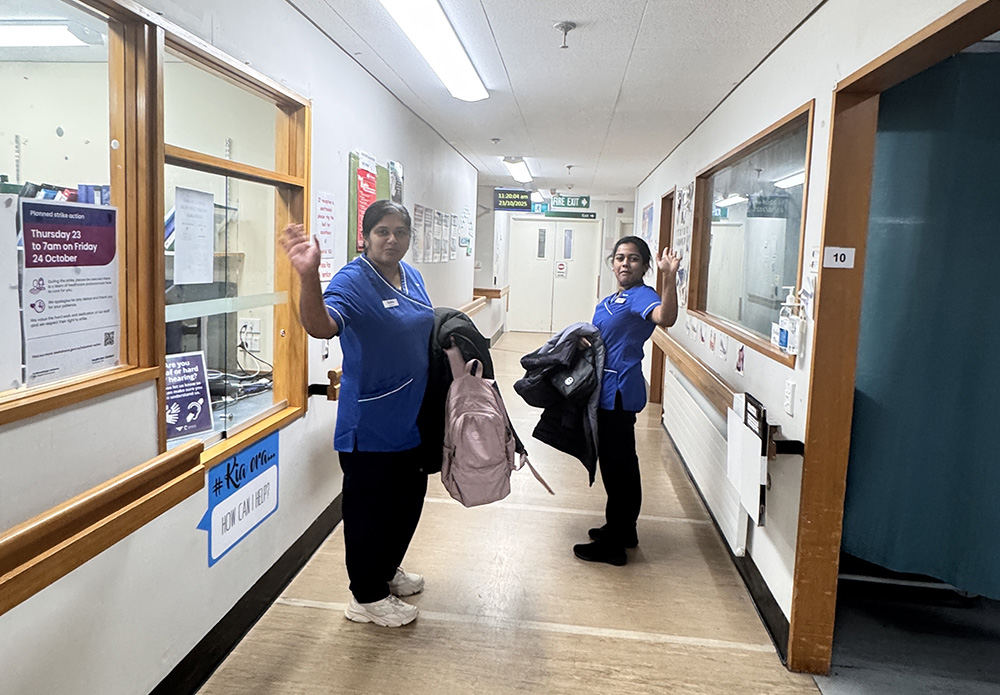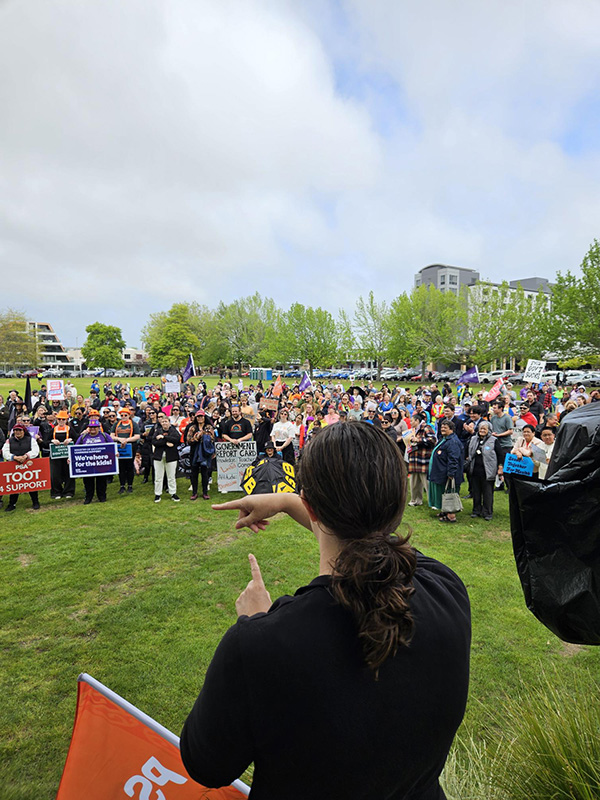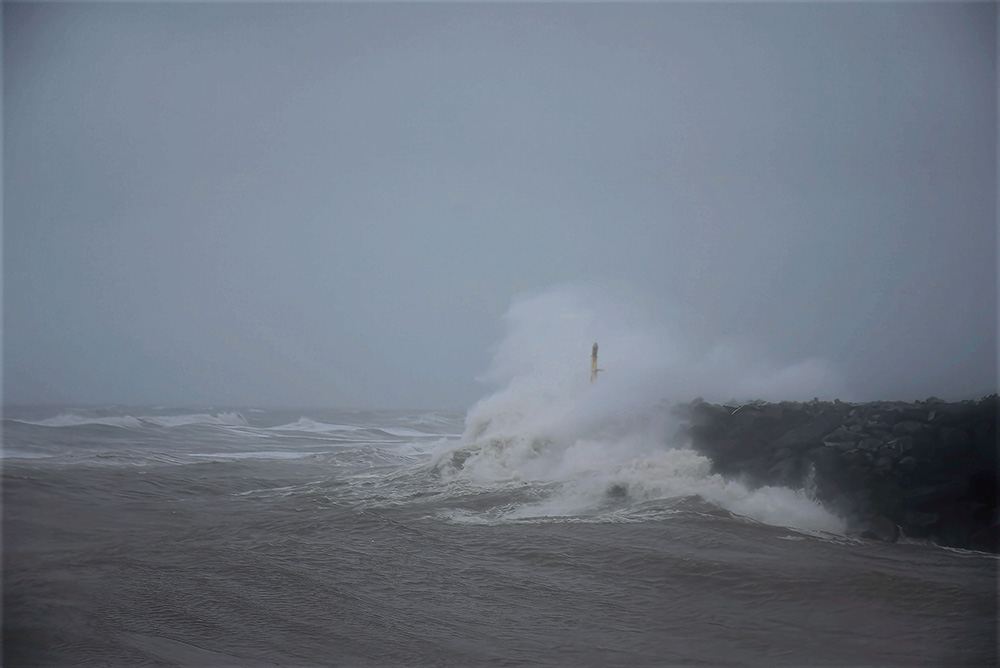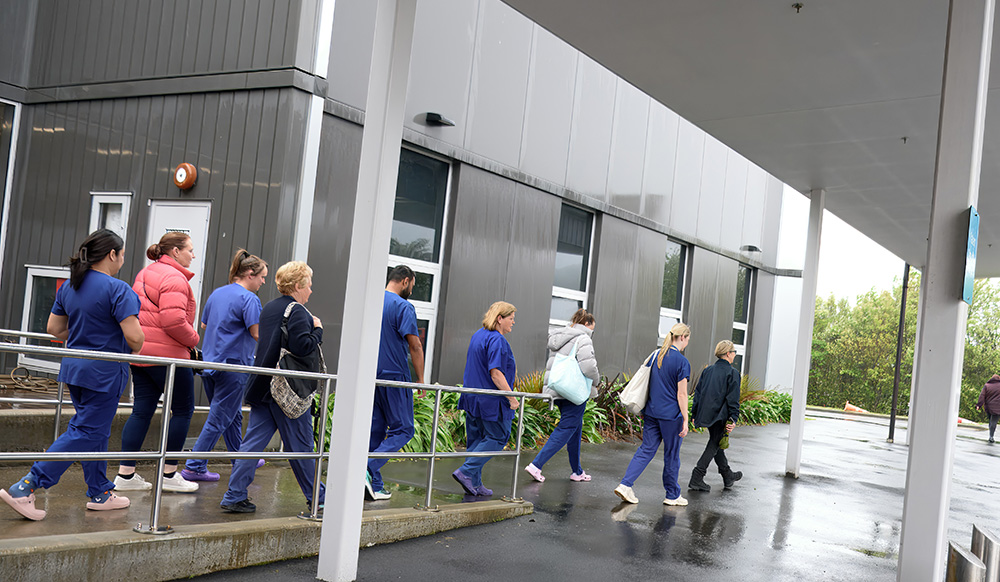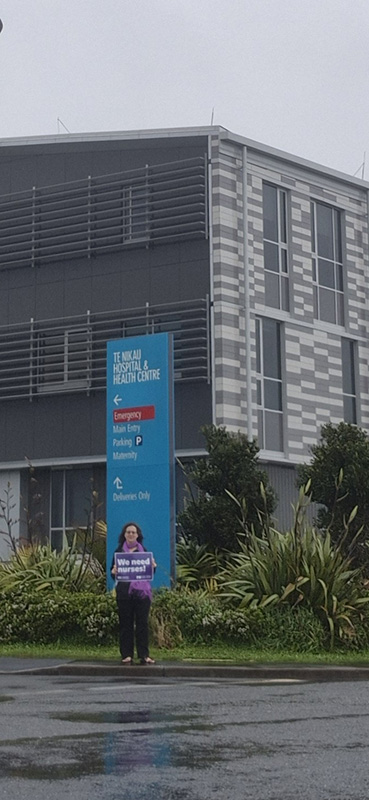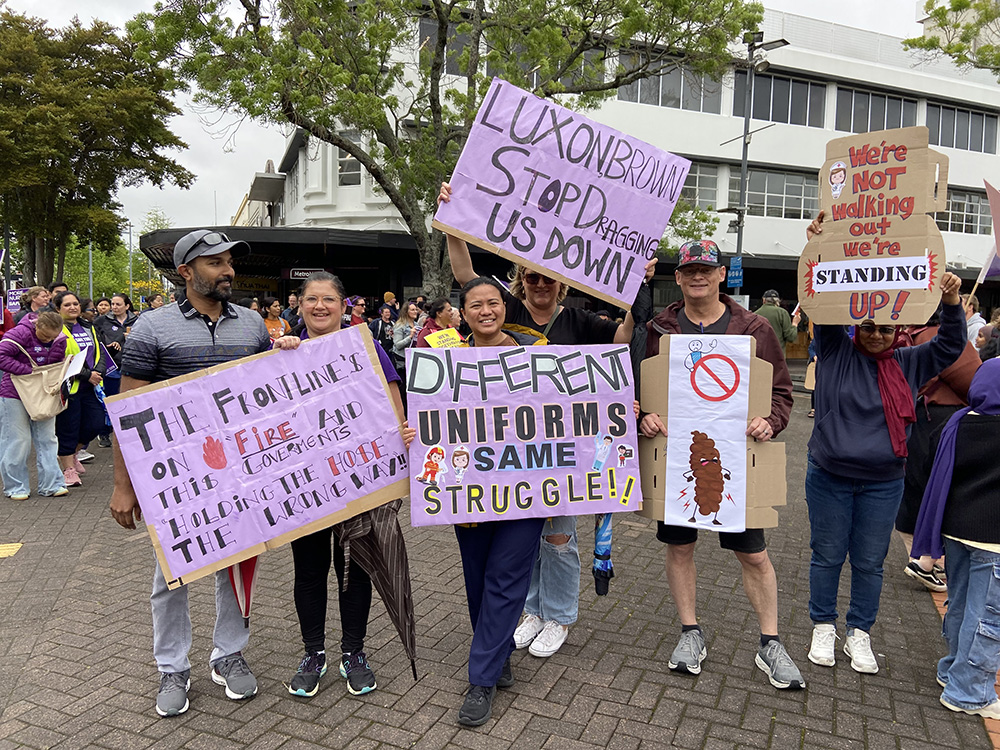Red weather warnings peppered the country but tens of thousands of nurses, kaiāwhina, midwives, teachers, principals, doctors, social workers and other public service workers still walked off the job.
About 18 of the 41 rallies planned around the country were cancelled or moved indoors after wild weather drew emergency alerts and dangerous weather warnings across the lower North Island and much of the South.
‘We’re all fighting for the same thing — it makes you feel you’re not alone in this fight.’
However, Auckland nurse Liandra Conradie said huge crowds attended the central city rally at lunchtime, as rain cleared and the sun came out. An estimated 23,000-plus workers across health, education, prisons and social services turned out in Auckland alone.
“There’s actually a lot of people — it’s one of the biggest strikes we’ve seen and the biggest march down Queen Street we’ve seen in years,” said Conradie, an NZNO delegate.
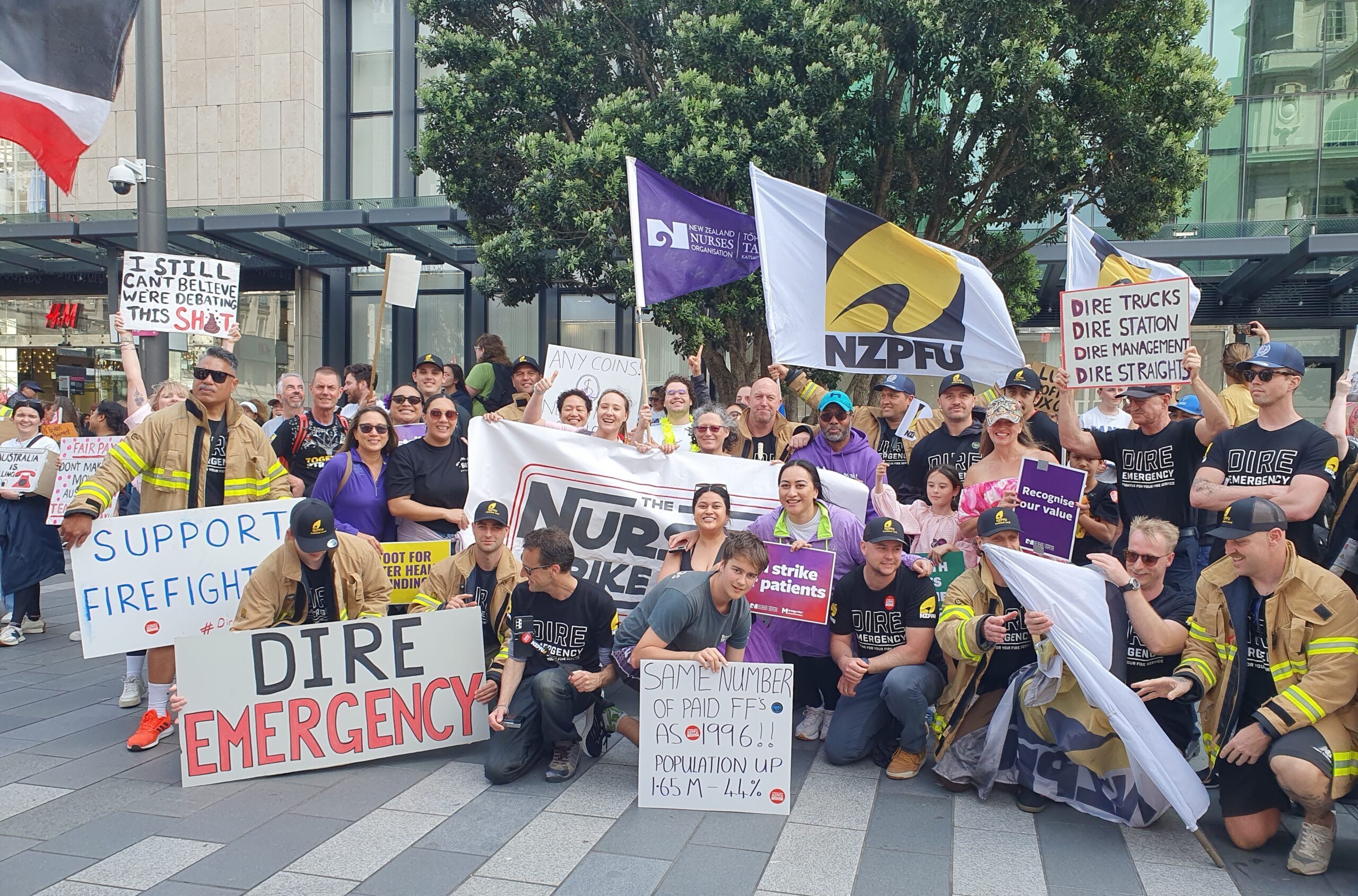
“The feeling of solidarity between all the unions and everyone here, it’s amazing,” Conradie told Kaitiaki. “We’re all fighting for the same thing — it makes you feel you’re not alone in this fight.”
Kaitaia nurse Sarah Johns said the small Far North town also packed a punch with about 300 people turning out.
‘I felt the wairuatanga and whanaungatanga today, alongside other warriors from across health and education.’
“I felt the wairuatanga and whanaungatanga today, alongside other warriors from across health and education.”
Whangārei health-care assistant Tony Gill could hardly be heard over the constant car tooting in a crowd estimated at more than 1000, on a sunny windless day.
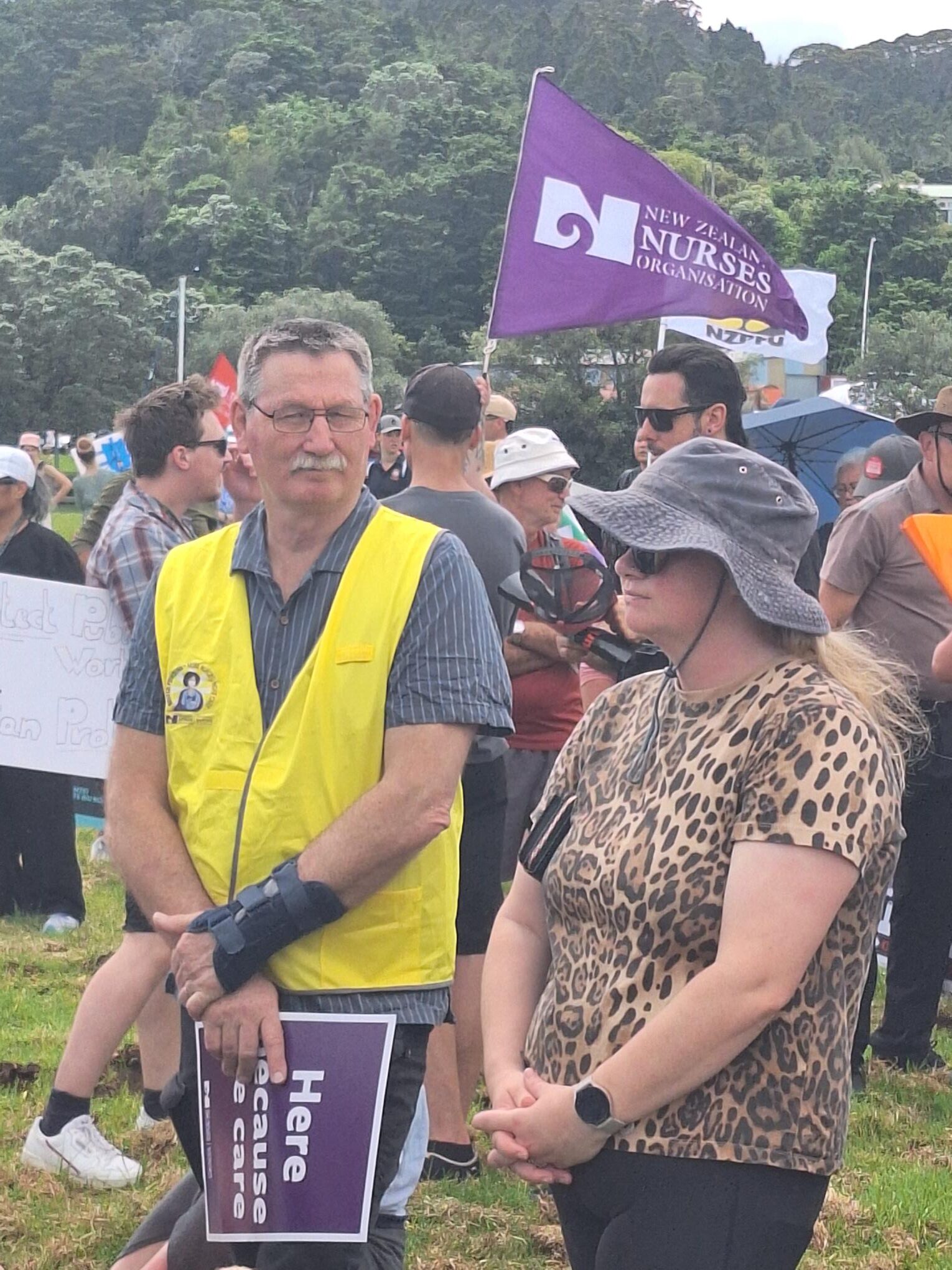
“The public is very appreciative. Lots of people waving, tooting their horns, standing watching us — cheering everyone on. We feel them behind us, even though we’re holding them up in the traffic a little while,” Gill told Kaitiaki.
Workers were standing up because they wanted change, he said.
“Everyone’s supporting each other — hospital staff combining with the teachers and firefighting staff. All these organisations joining together,” he said.
“I love my job and I enjoy it every day — and that’s why we do it.”
Palmerston North nurse Jane Swift said she felt “proud” after more than 1000 people turned out:
“Even before the march started, there were people in every park across the city picketing since the early hours of this morning. I am proud to be a nurse today, standing with teachers, doctors and others.”
Several nurses from Papakura Marae turned up to support their Te Whatu Ora colleagues in Auckland’s rainy Aotea Square.
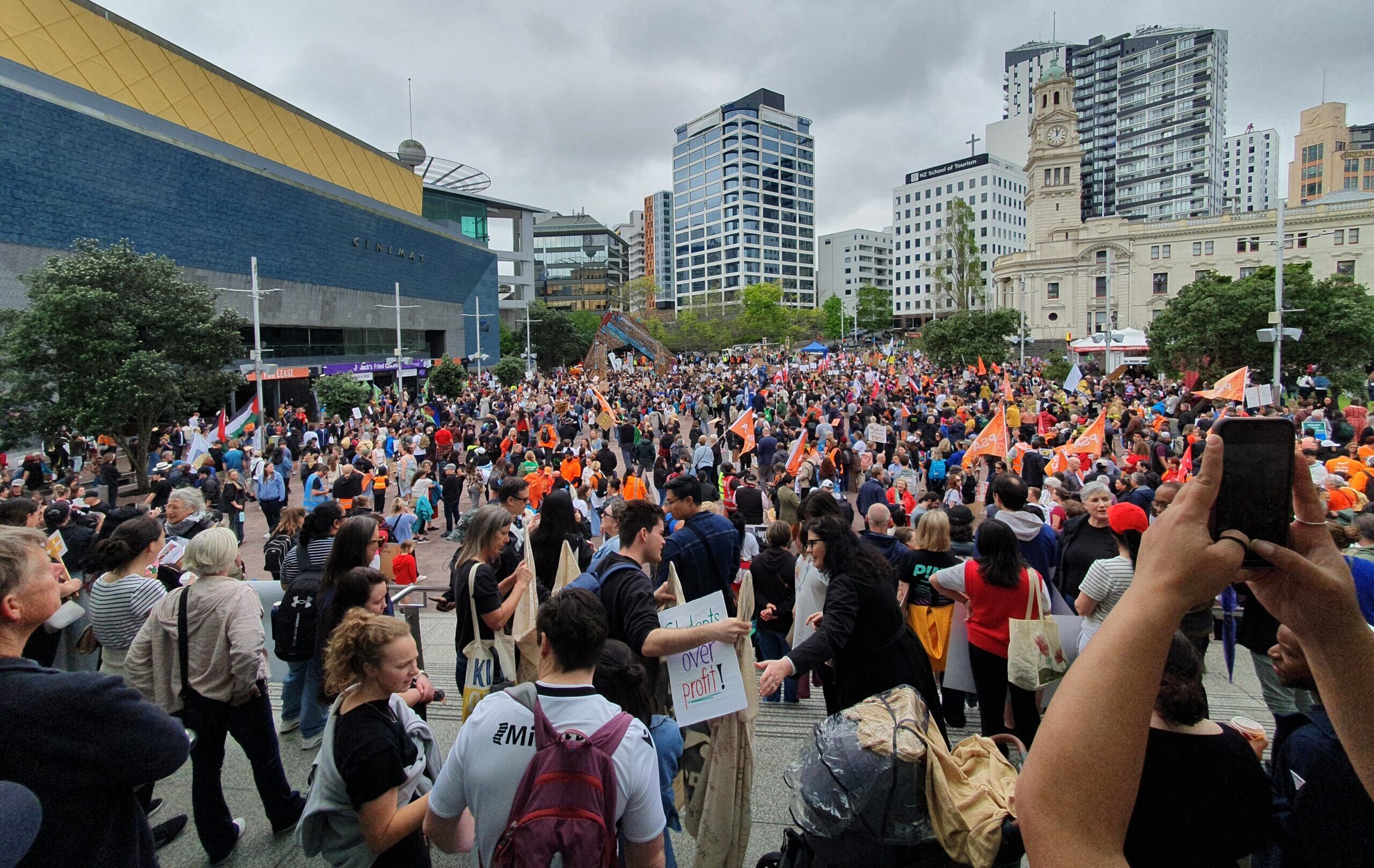
One, registered nurse (RN) Kathryn Chapman said safely-staffed hospitals were crucial to keeping families safe.
“Safe staffing because our whānau go into the hospitals, some of our patients end up going into the hospital — it’s advocating for whānau really.”
Stuck in a stadium
Meanwhile, in the deep south weather warnings may have forced some rallies indoors but didn’t dampen striking workers’ enthusiasm.
The Government announced a local state of emergency for Canterbury on Wednesday afternoon.
However by midday on Thursday the bad weather – or high winds at least – stretched as far south as Invercargill.
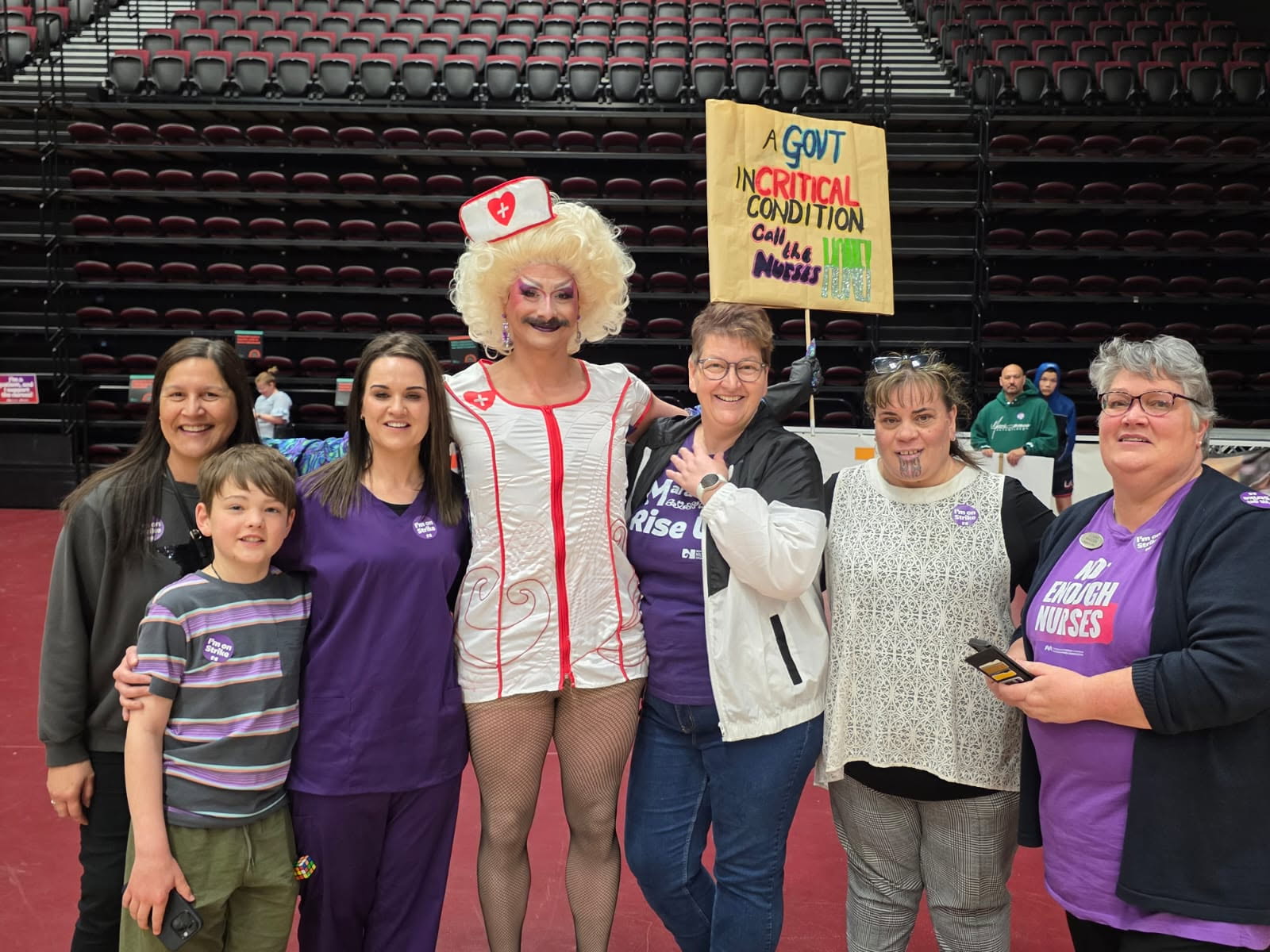
Southern NZNO delegate Charleen Waddell said members and others on strike were forced to stay put in Stadium Southland because of the sudden arrival of bad weather.
The sun had been shining only half an hour earlier as the strikers rallied at the alternative indoor venue, she said.
‘Everyone’s supporting each other — hospital staff combining with the teachers and firefighting staff.’
“We can’t leave the building now. It’s a bit windy. It’s looking pretty dire but we’re all safe in a building.”
While the various essential service workers on strikes hunkered down in the stadium, one part of the audience was forced to leave.
Firefighters, who went on strike the previous week, were called out of the building to deal with falling trees, Waddell said. “We’re stuck here for a while.”
Nurses, kaiāwhina, teachers, doctors and allied workers walking off the job in Whangārei today.
Despite the weather she said there was a definite sense of kotahitanga in the building, with the unions all standing together.
The stadium was booked till 1.30pm, she said, “so hopefully the winds are dying down, not ramping up”.
Waddell later confirmed members headed home at about 1pm, with work restarting at 3pm. By that stage the region was under a red wind warning, flights were cancelled and a kotahitanga dinner planned for the evening would go ahead with speakers unable to get into Invercargill joining online.
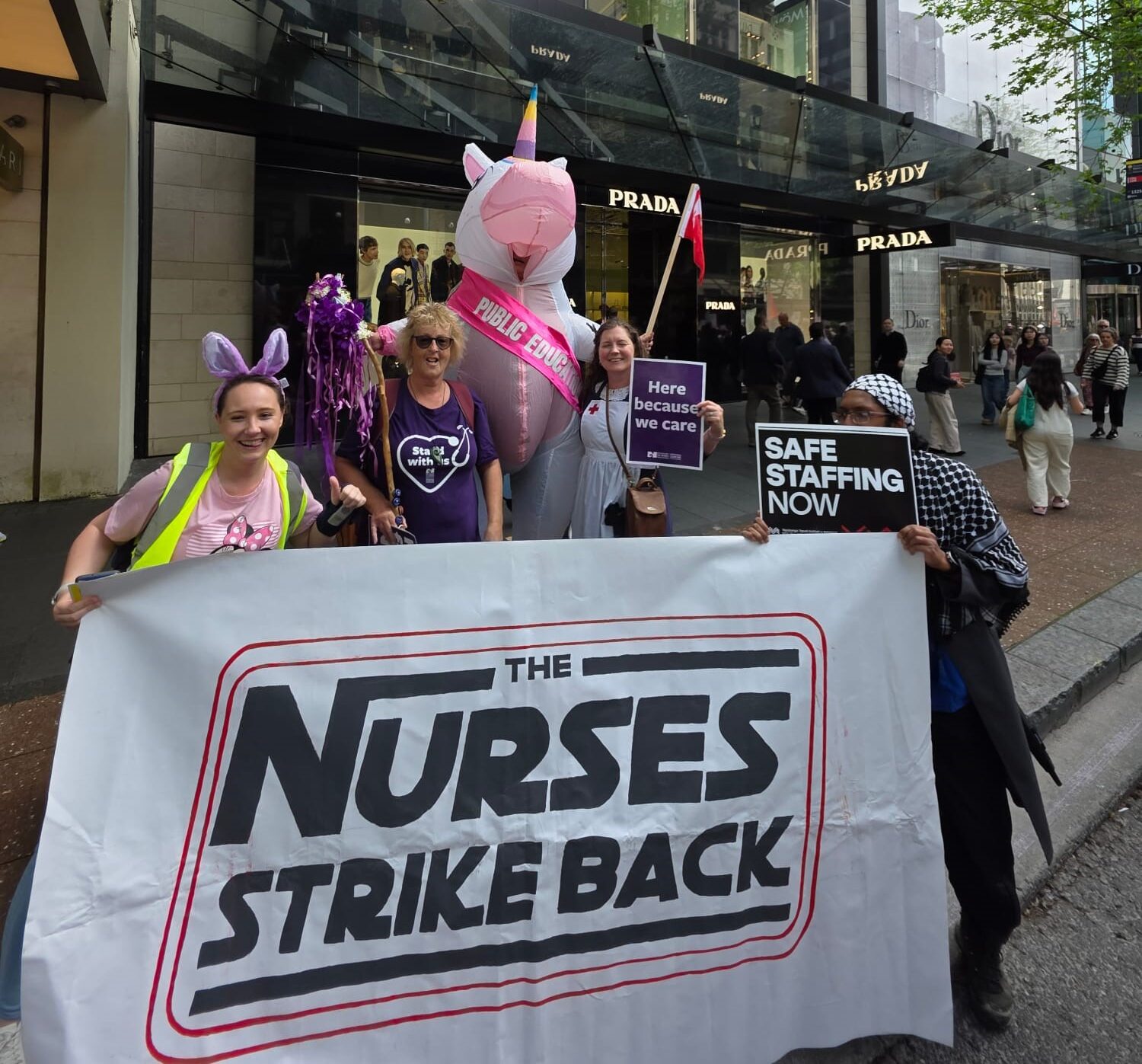
Meanwhile, further north there was a sense of FOMO in another region where striking Te Whatu Ora members had been forced to cancel rallies.
In Masterton, Wairarapa, registered nurse Amy Tubman said members had gathered at Wairarapa Hospital to officially walk off, but that was all they could do.
‘I love my job and I enjoy it every day — and that’s why we do it.’
“We did the walk-off and then were outside the front of the hospital for a little bit before people had to go home before the wild weather hit.”
Tubman said members – hyped up ahead of the cancellations – felt a sense of disappointment waking up on Thursday knowing weather had wrecked their plans.
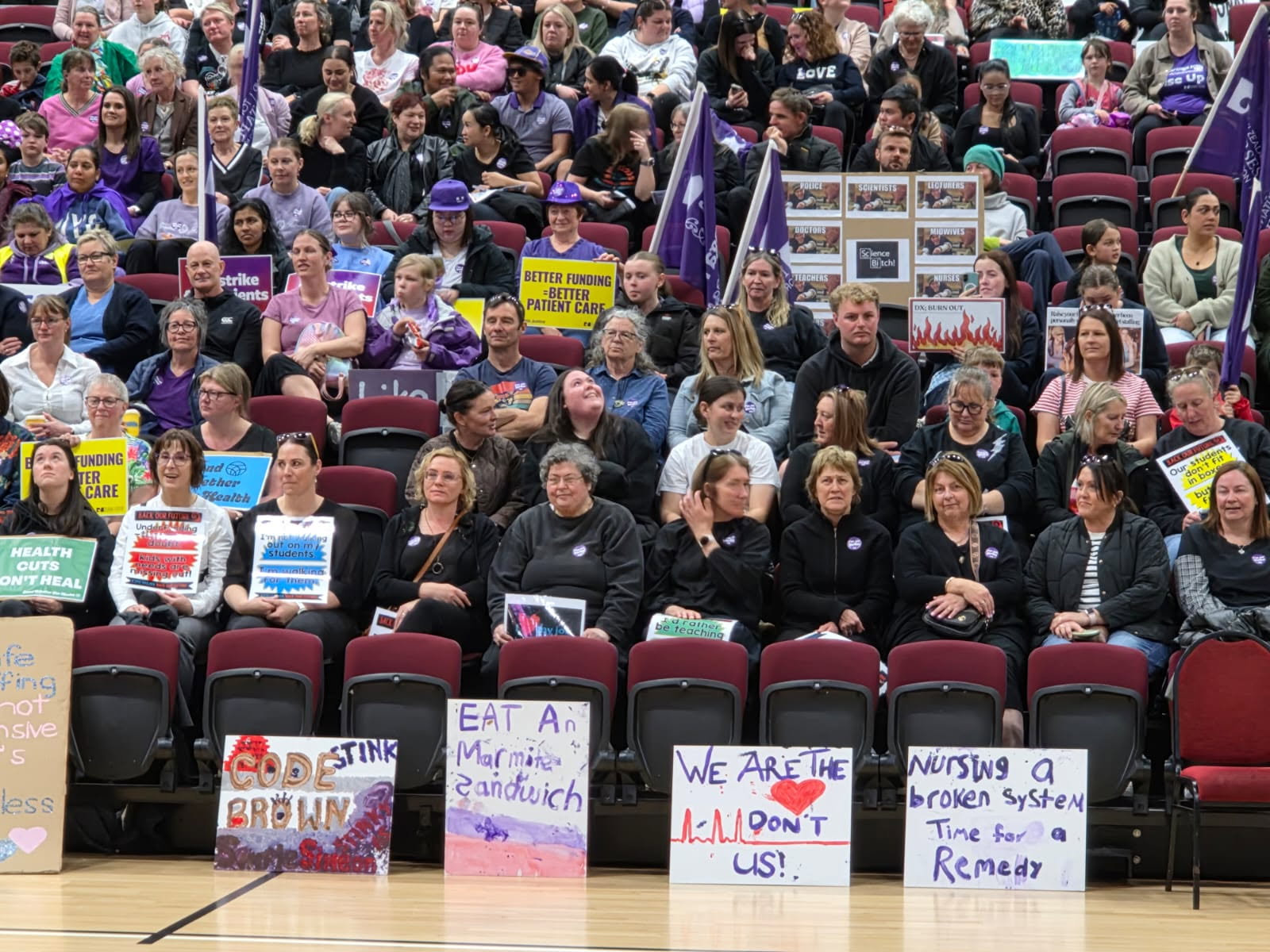
“We’d got the banners and signs all done, so it kind of felt like we weren’t able to express our own disappointment in what was happening [in the health system].”
Many of her colleagues had been writing letters to ministers to show their support for the cause, she said.
‘The feeling of solidarity between all the unions and everyone here, it’s amazing.’
The unions in Wairarapa would go ahead with plans to contribute food to the local foodbank – something they’d wanted to do at the rally.
Tubman said her sister, an NZEI member on strike, had sent her a video of the Palmerston North rally.
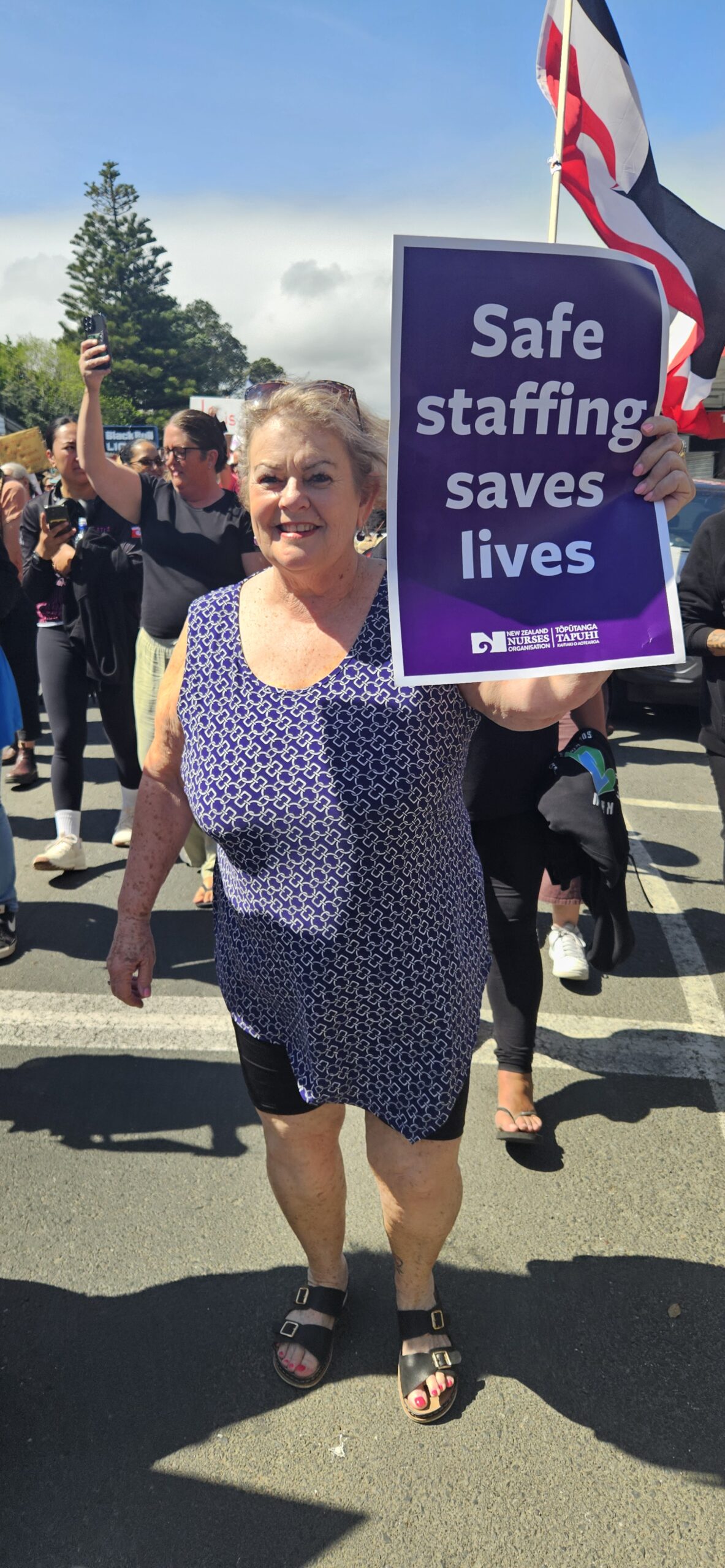
“It’s huge in Palmerston North at the moment. It’s really heartening to see where everyone else is and what they’re doing, it’s just disappointing that a lot of our members feel they can’t contribute.”
‘We were outside the front of the hospital for a little bit before the wild weather hit.’
More than 100,000 workers from essential services in collective bargaining took part in strikes calling on the Coalition Government to properly fund their mahi.
This includes nurses, midwives, health care assistants, doctors, teachers, principals and allied health workers from several unions including NZNO, NZEI, ASMS, PSA and PPTA.
There were 41 NZNO rallies around the country planned, however nearly half were forced indoors or cancelled after red weather warnings and emergency alerts over a spate of wild weather in the Lower North Island and much of the South Island.
Te Whatu Ora members’ latest strike comes after they downed tools in July and September.
Last Friday it was firefighters’ turn to strike — about 2000 going out for an hour, with NZNO members supporting them. Many turned out today to support other frontline workers, often with their trucks which must stay at the stations during their own strikes.



